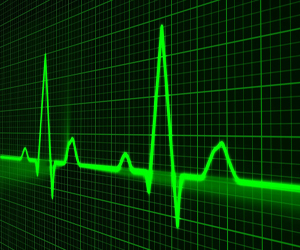 Dealing with issues of life and death is never easy, and this topic is no exception. Although there is general, widespread agreement that organ donation is allowed, and even encouraged as a life-saving mitzvah, there remain some areas of disagreement. One of the most important is, when is a person considered dead? How do we determine that?
Dealing with issues of life and death is never easy, and this topic is no exception. Although there is general, widespread agreement that organ donation is allowed, and even encouraged as a life-saving mitzvah, there remain some areas of disagreement. One of the most important is, when is a person considered dead? How do we determine that?
Current secular law in most jurisdictions in the U.S. and around the world recognize two standards which can be used to establish legal death:
- lack of breathing and/or heartbeat (the traditional criteria), or
- brain death.
But is brain death considered halachic death according to Judaism?
Historical Jewish Determination of Death
Many of the historical discussions on determining death date back to Talmudic sources. The general consensus was that there are three necessary conditions for establishing death:
- The person does not move his/her limbs.
- The person is unconscious.
- The organ whose activity defines life and death has completely and irreversibly ceased all activity. (Historically, it was generally the cessation of breathing and/or heartbeat.)
However, medical technology has advanced and we can now support a body’s breathing with mechanical ventilation. And the heart, unless it’s seriously damaged, can continue to beat for many hours or even days, as long as it continues to receive oxygen.
The question becomes – Is a person still alive if they can’t breath on their own? How do we make that determination?
That’s when the concept of brain death becomes relevant.
Israel’s Chief Rabbinate Ruling
In 1985, the Chief Rabbinate of Israel appointed a committee of rabbis and medical advisors to consider the issue of brain death.
That committee concluded, and the rabbinate unanimously agreed, that under a strict set of conditions, brain death qualifies as halachic death.
They established that a person in which all the objective scientific conditions for determining total brain death are present, including brain stem death and the total and irreversible absence of respiration, is dead for all intents and purposes.
Therefore organ donation after brain death is permissible, but only if it is carried out in accordance with halachic law.
As you can imagine, that did not settle the issue, and controversies continued between the medical and rabbinic communities.
Israel’s Brain-Respiratory Death Law
A new committee was set up to establish the rules for determining brain death, hoping to get the largest possible social consensus.
These rules were codified into the Israel Brain-Respiratory Death Law, 5768-2008.
Even so, some rabbis do not accept brain death as halachic death. (Interestingly, some of these rabbis do encourage living kidney donation.)
Choosing For Yourself
This page has provided a brief overview of a very complicated issue. You can find more in-depth information, discussion and video supporting both sides of the issue at the links below.
If you have additional questions or concerns, please talk to your rabbi.
Resources
Articles and videos by Orthodox rabbis and scholars about the halachic and medical issues surrounding brain-stem death and organ donation, covering both sides of the issue.
https://hods.org/halachic-issues/videos/
https://hods.org/halachic-issues/articles/
https://hods.org/halachic-issues/issues/
Statement in support from The Rabbinical Assembly, the membership organization for Conservative rabbis, Resolution on Organ Donations, June 2011:
https://www.rabbinicalassembly.org/resolution-organ-donations
Statement in support from The Committee on Jewish Law and Standards of the Rabbinical Assembly: Organ Donation After Cardiac Death (February 2010)
https://www.rabbinicalassembly.org/sites/default/files/assets/public/halakhah/teshuvot/2005201/dcd_teshuvah_final%2002-10.pdf
The National Transplant Center in Israel
https://www.adi.gov.il/en/position-of-the-halacha
